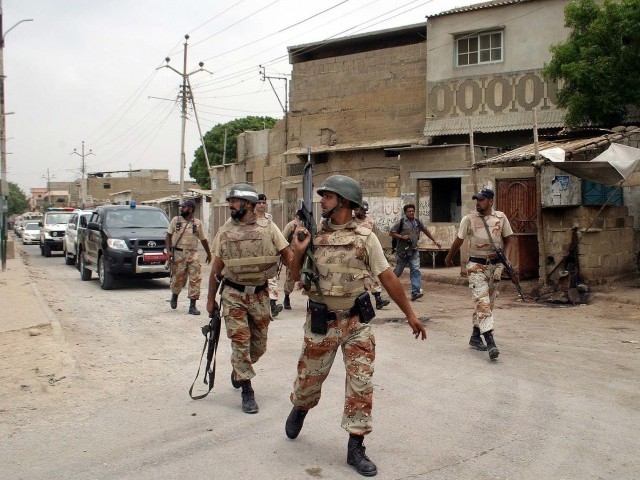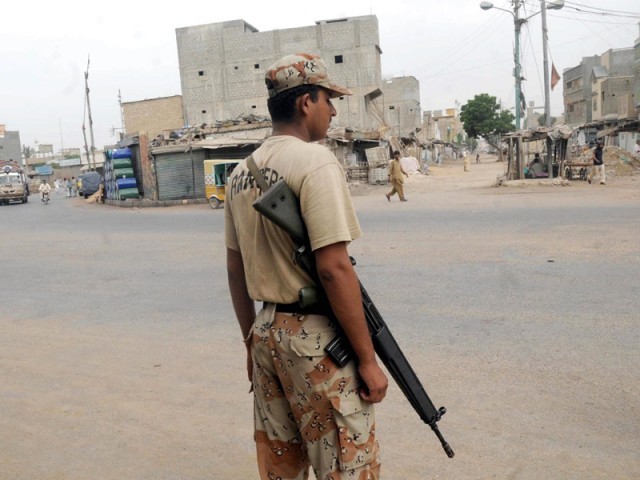KARACHI:
Law enforcement agencies, including the Pakistan Rangers and police, not only refuse to lodge cases in certain incidents of target killings, but actually tell the victims families to take revenge on their own.
These observations were made by family members of the victims of target killings to a fact-finding mission of the Human Rights Commission of Pakistan that conducted its first public hearing on the issue at the Karachi Press Club on Sunday.
At least 20 families, mostly residents of the volatile towns of the city, including Orangi and Lyari, came to meet HRCP representatives and shared their heart-wrenching tales.
However, even as the families recounted their tragedies, at least nine more people were killed in the city.
The father of nine children, Sher Khan, from Orangi No. 5, said his house was taken over by armed men on July 5. They set up a check post or morcha in one of the rooms. Khan said that when he approached the Rangers and police, they told him that he should not bother them and get his own revenge. Habibullah claimed that dozens of houses were burnt in Orangi by terrorists who used Molotov cocktails or alcohol bottles filled with petrol. Businessman Fawad said his shop in Aligarh cloth market was also burnt down.
Abdul Bai said that when gunmen opened fire on his tea shop on April 14 near the Lucky Star chowrangi, two of his cousins died. Theres a headquarters of the army personnel nearby, but no one came to our rescue, said Bai, who himself suffered two gunshot wounds. He said the sad part was even though an FIR was registered, nothing has come of the investigation. In fact, the police is telling us that we should try to find the culprits ourselves, he said.
Sulemans father Abdul Latif from Usmanabad said everyone knew who killed his son when his body was found in a gunny bag. But despite this, the family didnt get justice. Husna screamed in pain as she recalled how her 22-year-old son was burnt alive in Lyaris Dubai Chowk last February.
All of the families who attended the public hearing hailed either from Pathan or Baloch communities. Human rights campaigner Hina Jillani said the HRCP was conscious of the fact that there have been an equal number of victims belonging to other communities as well, the cases of which would also be looked into. IA Rahman assured the families that the HRCP would raise its voice on their behalf at every forum and investigate their claims from other sources.
HRCP members, including chairperson Zohra Yusuf, Hina Jillani, IA Rehman and Ghazi Salahuddin, are part of the fact-finding mission, that also met a select group of reporters separately earlier in the day in their quest to uncover the reasons and solutions to the conflict.











